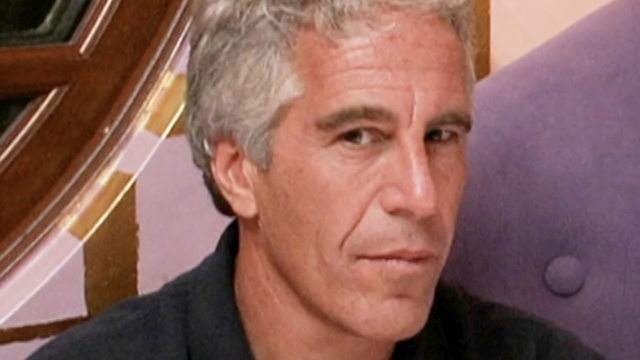It's been almost four years since the stunning news of Jeffrey Epstein's death from what the medical examiner ruled a suicide, as Epstein awaited his high-profile sex trafficking trial.
Almost immediately, the U.S. Justice Department promised accountability, with then-Attorney General Bill Barr guaranteeing a thorough investigation.
But all these years later, the Department of Justice has failed to provide any answers about how Jeffrey Epstein was allowed to die while in the custody of the federal government.
Attorney Lisa Bloom represented eight of Jeffrey Epstein's accusers. She believes the criminal justice system failed them the moment he was left alone in his cell the night he died.
Lisa Bloom's mother is well-known women's rights attorney Gloria Allred. Between the two of them, they've come to represent dozens of Epstein's accusers.
"Victims are human beings, they've been through not only the trauma of being sexually victimized and trafficked by Jeffrey Epstein, but traumatized by the system that was supposed to be there to help them in winning justice," Allred said.
That long-promised DOJ inspector general's report was supposed to shed light on Epstein's death and the failure to guard a high-profile inmate.
"There's no justification for three and a half years to go by on really just investigating one incident. Jeff Epstein was allowed to escape justice in life and he was allowed to escape justice in death and now there's no justice for the victims. It just continues," Bloom said.
SEE MORE: JPMorgan settles with Jeffrey Epstein victims
To see what we could learn, Scripps News filed Freedom of Information Act requests for thousands of documents from the Bureau of Prisons.
The paperwork revealed that the inspector general's office arrived at the prison the same day Epstein died and almost immediately started gathering evidence — like computers and phone logs.
We also uncovered emails notifying employees the inspector general wanted to interview them. But where this investigation went next remains a mystery.
In that information vacuum, conspiracy theories have exploded on the internet, suggesting Epstein may have been killed to cover up for his high-profile friends.
Jeffrey Epstein's brother, Mark, is convinced his brother didn't die by suicide, and told Scripps News the inspector general hasn't reached out to a string of potentially key witnesses.
One of those people is famed forensic pathologist Dr. Michael Baden. Mark Epstein hired him to be present at his brother's autopsy.
In multiple interviews, Dr. Baden has pointed to specific neck bone fractures sustained by Epstein which Baden said he hasn't seen in a suicide in 50 years of investigating deaths.
The New York Medical Examiner has pushed back on Baden's statements, standing by her conclusion that Epstein died by suicide.
Baden has said publicly his observations aren't conclusive, but there's enough evidence of homicide in his view that it shouldn't be discounted as a possibility without a deeper investigation.
SEE MORE: New documents detail weeks leading up to Jeffrey Epstein's death
"I think we need to know more. I do think that Dr. Baden has raised some good questions," Allred told us.
Attorney David Schoen, who was in talks with Epstein to take over his case, agrees.
We told Schoen that Baden hasn't yet been contacted by the Department of Justice Office of the Inspector General.
"That's shocking. That's shocking," Schoen said when we told him. "That makes no sense on any level for any legitimate reason."
Schoen himself was in contact with Epstein in the weeks before his death strategizing about his case and he, too, told us he's never been approached by the DOJ.
Scripps News also spoke with Marc Fernich, one of Epstein's defense attorneys, who says he has not heard anything from the feds either. He calls the DOJ's entire investigation a farce.
Among the thousands of documents Scripps News obtained from the Bureau of Prisons, a lot of the material focused on Epstein's behavior and mindset in the weeks leading up to his death.
Schoen told Scripps News that at the time of Epstein's death, Epstein was actively making plans to fight his case in a courtroom — but Schoen has never had a chance to tell that to investigators.
"I worry about the integrity of the process, at this point, if they haven't shown any greater interest in interviewing people who should have been interviewed," Schoen said.
Scripps News Investigates reached out to the Department of Justice by phone and email to try to understand why people like Dr. Baden, David Schoen and Marc Fernich were never contacted and to get an update on the status of the investigation.
A spokesperson didn't respond to some questions, but wrote, "the DOJ is completing, and will soon be releasing, our investigation into the Bureau of Prison's handling of Jeffrey Epstein's incarceration."
Gloria Allred sent her own letter to Inspector General Michael Horowitz in March of this year demanding answers, and she was also told that the government's report is still being finalized.
Scripps News also spoke with Glenn Fine, the former Inspector General for the Department of Justice from 2000 to 2011 who said, "While the scope of these investigations can change, and while an investigation over three years is long, this inspector general's office is known for being thorough."
Trending stories at Scrippsnews.com



